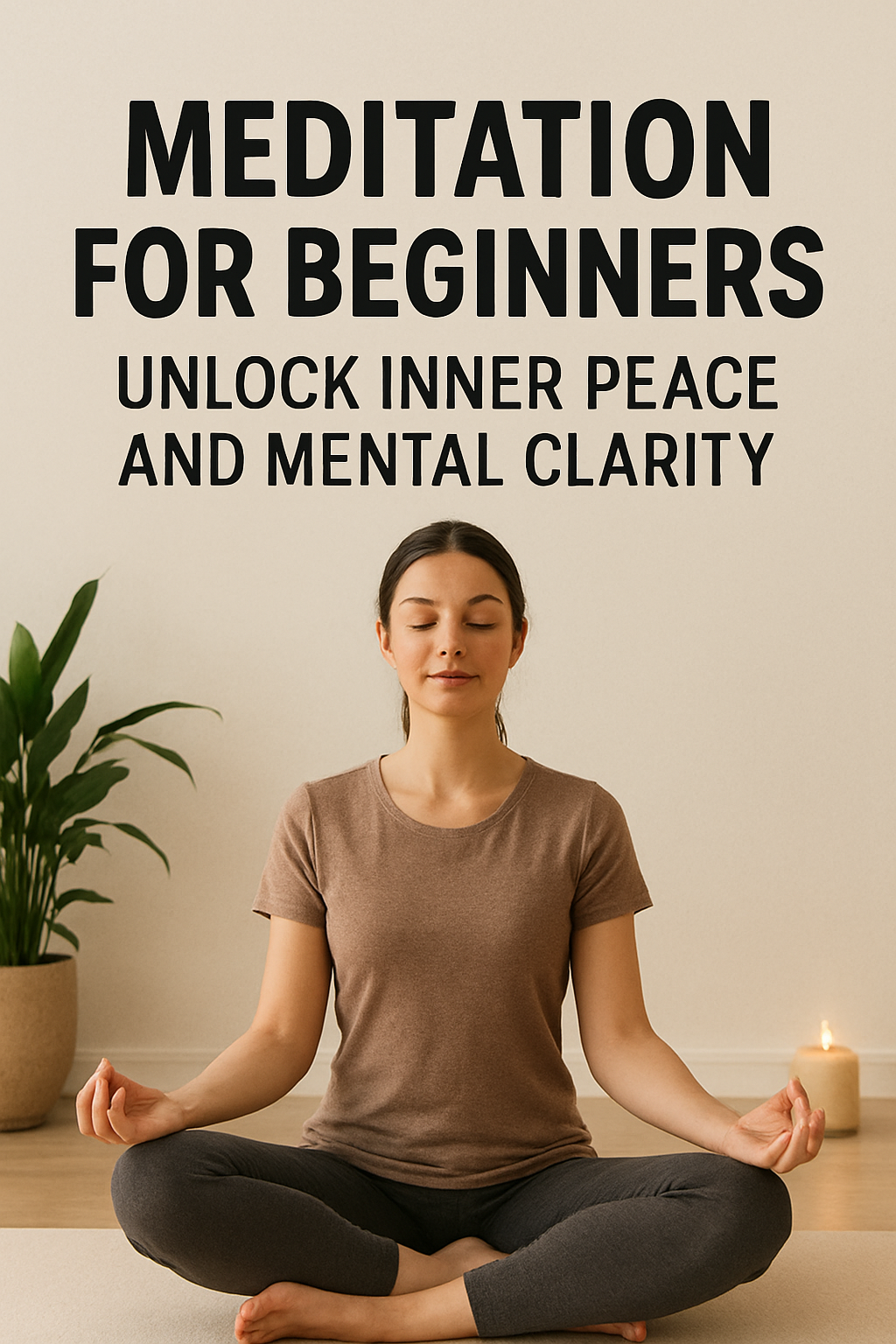In today’s fast-paced world, stress and distractions are constant companions. Many people struggle with anxiety, sleeplessness, and lack of focus. This is where meditation comes in as a powerful tool to restore balance, calm the mind, and enhance overall well-being. Whether you are a beginner or have tried meditation occasionally, understanding its benefits and techniques can transform your life.
What is Meditation?
Meditation is the practice of training your mind to focus and redirect thoughts. Unlike simply relaxing, meditation teaches awareness and mindfulness, helping you observe your thoughts without judgment. It encourages mental clarity, emotional stability, and a sense of peace.
Benefits of Meditation
Practicing meditation regularly provides a wide range of mental, emotional, and physical benefits:
-
Reduces Stress and Anxiety – Meditation lowers cortisol levels, helping you manage stress more effectively.
-
Improves Focus and Concentration – Mindfulness techniques enhance your ability to stay present and attentive.
-
Boosts Emotional Health – Regular practice promotes positive thinking, reduces depression, and improves overall emotional well-being.
-
Enhances Sleep Quality – Meditation relaxes the mind and body, making it easier to fall asleep.
-
Increases Self-Awareness – By observing your thoughts, you gain insight into behaviors and habits.
-
Promotes Physical Health – Meditation can lower blood pressure, strengthen the immune system, and support heart health.
Popular Meditation Techniques
There are various meditation styles you can explore based on your needs and preferences:
-
Mindfulness Meditation: Focuses on the present moment, observing thoughts without judgment.
-
Guided Meditation: Involves listening to a guide or audio that leads you through relaxation exercises.
-
Transcendental Meditation: Uses the repetition of a mantra to achieve deep relaxation.
-
Loving-Kindness Meditation (Metta): Cultivates compassion and kindness for yourself and others.
-
Body Scan Meditation: Concentrates on each part of the body to release tension and promote relaxation.
How to Start Meditating
Starting meditation doesn’t require any special equipment or location. Follow these simple steps to begin:
-
Find a Quiet Spot – Choose a calm space where you won’t be disturbed.
-
Sit Comfortably – Sit on a chair or cushion with your back straight.
-
Focus on Your Breath – Take slow, deep breaths, noticing the inhale and exhale.
-
Use a Mantra or Visualization – Repeat a word or visualize a calming image if your mind wanders.
-
Start Small – Begin with 5–10 minutes daily and gradually increase your session time.
Tips for Consistency
-
Meditate at the same time daily to build a habit.
-
Keep your posture relaxed but alert.
-
Be patient; it’s normal for the mind to wander initially.
-
Try different techniques to find what works best for you.
Conclusion
Meditation is more than just sitting quietly; it’s a path to self-discovery, mental clarity, and emotional resilience. By dedicating a few minutes each day to meditation, you can reduce stress, improve focus, and create a sense of inner peace. Start small, stay consistent, and experience the transformative benefits of meditation in your daily life.

